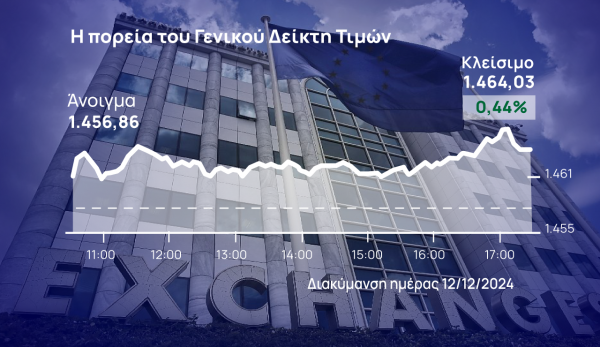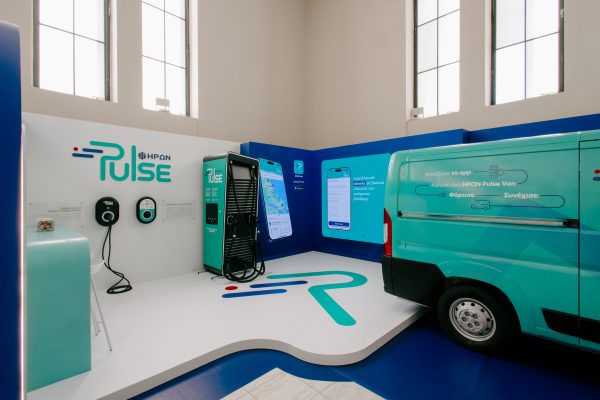
A number of ambitious reforms and investments that aim to help the Greek economy become more sustainable, resilient and better prepared for the challenges and opportunities of the green and digital transition, Greece is called to implement in the near future, as stated in the publication “7 Days Economy” by Eurobank.
The National Recovery and Sustainability Plan “Greece 2.0” includes 106 investments and 68 reforms structured in 4 pillars, the green transition, the digital transition, employment skills and social cohesion, and private investment and the transformation of the economy.
Resources totaling 30.5 billion by 2026
Greece expects total resources of € 30.5 billion for the period 2021-2026, of which € 18.1 billion in grants and € 12.4 billion in loans. A condition for achieving the full absorption of the aforementioned funds by 2026 is that Greece will complete all the relevant milestones and targets that have been set in time. The European Commission, on August 9, 2021, disbursed to Greece in the form of pre-financing the amount of € 3.96 billion (corresponding to 13% of total grants and loans), as a kick-off for the implementation of the required critical investment and reforms meters.
The first tranche of the € 3.6 billion Recovery Fund, of which € 1.72 billion is in grants and € 1.84 billion in loans, was disbursed on 8 April 2022, following a positive assessment by the European Commission on 28 February, as the country successfully completed the fifteen (15) milestones associated with the first payment request.
These milestones were linked to reforms and investments in the areas of energy efficiency, electricity mobility, waste management, the labor market, taxation, the business environment, healthcare, public transport, and the accounting system. and other controls in Greece for the implementation of the recovery and resilience mechanism.
The 65 landmarks
However, Greece will have to fulfill an additional sixty five (65) milestones by the end of 2022, so that it can claim 2 more installments totaling € 5.3 billion.
More specifically, the second tranche of € 1.72 billion concerns subsidies only and is linked to twenty-five (25) milestones, which should be completed by the end of the 2nd quarter of 2022.
Some of these milestones have started to be implemented and / or tend to be completed before the deadline, such as the reform for the simplification of RES licensing, the digital transformation of SMEs through a voucher system, the strategic plan for vocational education, training, and lifelong learning, setting standards for the interconnection of electronic cash registers and POS with public revenue authority AADE, providing tax and financial incentives to create economies of scale through partnerships and corporate transformations of SMEs, the economic transformation of the agricultural sector and the creation of new industrial parks.
The third tranche of € 3.6 billion, of which € 1.72 billion relates to grants and € 1.84 billion in loans, is linked to the achievement of an additional forty (40) milestones by the end of the 4th quarter of 2022, which makes the approval of its disbursement even more demanding.
Reforms until the end of 2022
The reforms that must be completed by the end of the year can be summarized in the following areas: energy upgrade of the country’s building stock (ie second and third cycle of savings) and preparation of urban plans implementing urban reform, establishment of installation and operation infrastructure implementation of new regulation of the electric market for the obligation to provide public service from buses, new fiber optic network in buildings and residences, new waste management legislation for the implementation of sustainable landfill and recycling (separate collection of biological waste, paper, glass and plastic by the end of 2022) and reform of water policy for the sustainable use of resources, digitization of archives and related services, provision of “customer-centric” public administration services, through the simplification and improvement of procedures and systems and compliance with European strategies and policies, initiatives related to the integration of new technologies in the digital transition and the modernization of public administration, improving the resilience, accessibility and sustainability of healthcare, the new money laundering and corruption, improving the efficiency of the justice system, cultural education and the publication of the call for proposals for the digital transformation of the agri-food sector (ie the development of a large-scale open digital agricultural infrastructure and cognitive agricultural environment for the production process and the management of natural resources).
It is a fact that Greece has made significant progress in implementing the plan, as well as the broader reform agenda. This is confirmed by the positive assessment of the European Commission in the context of the 14th Enhanced Surveillance Report, which was published earlier this week. As the Commission concludes, the Greek authorities have taken all necessary steps to fulfill their specific commitments in the areas of public financial management, real estate taxation, disability benefits, environmental inspections and justice, while also agreeing to extension of the mandate of the Hellenic Financial Stability Fund.
Structural reforms
In addition, the country has completed broader structural reforms, including the reform of public procurement and the establishment of a Statistical Justice Department at the Ministry of Justice. As a result, the Commission gave the green light for Greece to exit the enhanced surveillance regime on 20 August 2022. However, there are also outstanding commitments, in particular as regards the the codification of labor legislation and the achievement of agreed goals for the settlement of arrears, which must be completed by October 2022.
In conclusion, Greece, despite its commitment to the implementation of reforms, has in front of it a large list of milestones / commitments which it must successfully complete in a relatively short period of time. These are structural reforms that are expected to increase productivity, by improving the business environment and the digitization of the state and the economy, to strengthen competition in product markets and to increase the share of the active population in the labor force. The full implementation of the Recovery and Sustainability Plan, ie the use of all funding and the full implementation of structural reforms, is very important, as it can significantly contribute to the growth of real GDP in Greece in the coming years (by 6.9 % in relation to the baseline scenario based on BoG estimates or 7.3% based on SOE estimates).
Latest News

Airbnb: New Measures Add €600 in Extra Costs for Property Owners
Property managers face an immediate administrative fine of 5,000 euros if access to the inspected property is denied or any of the specified requirements are not met.

Economist: Greece Included in the Best Performing Economies in 2024
Meanwhile, Northern European countries disappoint, with sluggish performances from the United Kingdom and Germany.

EasyJet Expands Its Routes from Athens
The airline’s two new routes will be to London Luton and Alicante and they will commence in summer 2025.

Capital Link Forum Highlights Greece’s Economic Resurgence; Honors BoG Gov Stournaras
Capital Link Hellenic Leadership Award recipient, Bank of Greece Gov. Yannis Stournaras, an ex-FinMin, was lauded for his pivotal role during Greece’s economic recovery

Tourist Spending in Greece Up by 14%, Visa Card Analysis Shows
Greece’s capital Athens emerged as the most popular destination, recording a 17% increase in transactions with Visa cards, surpassing even the cosmopolitan island of Mykonos.

Inflation in Greece Unchanged at 2.4% in Nov. 2024
The general consumer price index (CPI) posted a 0.4% decrease in November compared to the previous month

2024 Christmas Holidays: Extended Shop Hours Schedule
The 2024 Christmas Holidays extended shop hours schedule commences on Thursday, December 12 and runs until the end of the year.

ELSTAT: Seasonally Adjusted Unemployment Down in October
The number of employed individuals reached 4,284,694, an increase of 67,723 compared to October 2023 (+1.6%) and 22,002 compared to September 2024 (+0.5%).

Greek PM’s Chief Economic Adviser Resigns
In the post on his Facebook page, Patelis did not disclose the reasons that led him to step down.

“Masdar Invests in the people of Greece and in the vision of TERNA ENERGY”
Four messages from the CEO of Masdar, the Arab renewable energy giant, after its acquisition of 70% of TERNA ENERGY













![Fraport: Πάνω από 35 εκατ. επιβάτες στα αεροδρόμια το 11μηνο – Πτώση στη Μύκονο [πίνακας]](https://www.ot.gr/wp-content/uploads/2022/06/fraport-90x90.jpg)

























![Fraport: Πάνω από 35 εκατ. επιβάτες στα αεροδρόμια το 11μηνο – Πτώση στη Μύκονο [πίνακας]](https://www.ot.gr/wp-content/uploads/2022/06/fraport-600x375.jpg)


 Αριθμός Πιστοποίησης Μ.Η.Τ.232433
Αριθμός Πιστοποίησης Μ.Η.Τ.232433